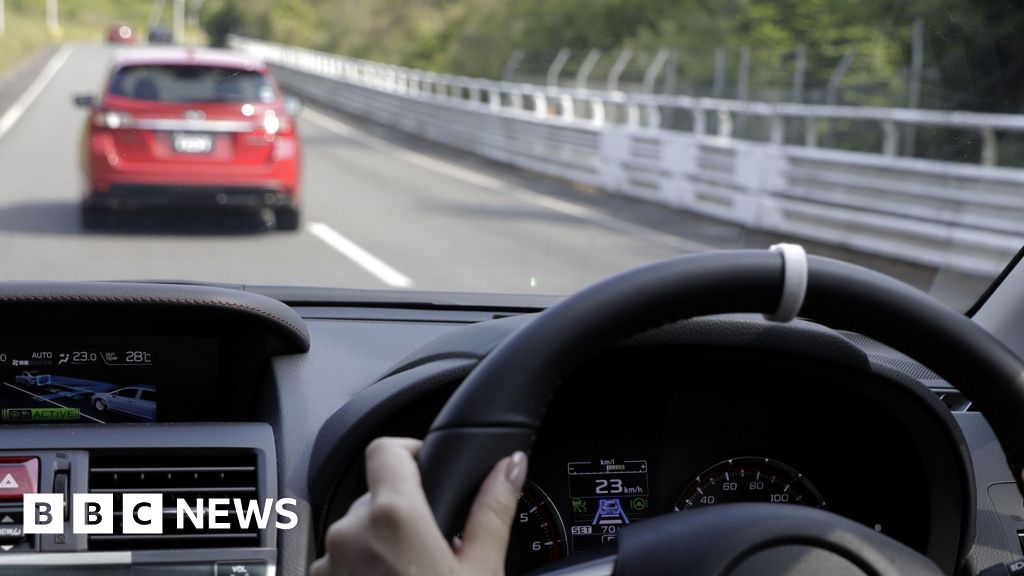
A coroner has called for changes to the law after four people were killed by drivers with failing eyesight, an inquest has heard.
Marie Cunningham, 79, and her 85-year-old friend Grace Foulds were crossing the road in Southport, Merseyside, when they were fatally hit by Glyn Jones, 67, in 2021.
He had been repeatedly told he was unfit to drive over a 10-year period and experts said he was “unable to see the steering wheel”.
Peter Westwell, 80, was killed in Langho, near Blackburn, in 2022 by a driver who lied about his eyesight condition to the DVLA, while Anne Ferguson, 75, was fatally struck by a motorist in Rochdale who had been referred for cataract surgery in both eyes.
Both those drivers had been told to give up their licences but ignored the advice.
At an inquest at Preston Coroner’s Court this week, Dr James Adeley, HM senior coroner for Lancashire called for changes to the law and issued a “prevention of future deaths notice” to Transport Secretary Heidi Alexander.
Her department has to respond with their plan of action within 56 days.
A Department for Transport spokeswoman said: “Every death on our roads is a tragedy, and our thoughts remain with the families of everyone who has lost a loved one in this way.
They added that they were “committed to improving road safety and continue to explore ways to achieve this”, including the coroner’s report.
What are the current rules?
The UK is the only European country to issues licences without any visual checks for a continuous period up to the age of 70.
After that, a person must renew their licence every three years but there is no mandatory vision check.
Instead, the UK law relies on self-reporting, where drivers are legally required to inform the Driver and Vehicle Licensing Agency (DVLA) – or the DVA for Northern Ireland – if they have any eyesight problems that affect their driving.
During the inquest on Thursday, coroner Dr Adeley described it as an “ineffective, unsafe system – unfit to meet the needs of society”.
Currently drivers must be able to read – at their driving test – a number plate made after 1 September 2001 from 20 metres away.
They can be prosecuted and fined up to £1,000 if they drive without meeting the required standards.
But the coroner pointed out: “However, as the DVLA have never referred a case to the police where a condition was not disclosed for consideration for a prosecution, this appears to be a sanction without teeth.”
What about when you go for an eye test?
The NHS recommends adults should have their eyes tested every two years.
Drivers are legally required to inform the DVLA if they have a condition which affects their eyesight.
But in surveys of optometrists in the UK more than half reported seeing a patient in the last month who despite being told their vision was beneath the driving standard indicated they would continue to drive, the inquest heard.
Another survey of the public found that 29% of motorists said they would continue to drive despite knowing their vision is below the legal standard.
Under the current law, there is no obligation for optometrists to notify the DVLA about a patient who is unfit to drive. However they have a duty to report it if it is in the public interest.
According to guidance from the General Optical Council – the regulating body for the optical professions – optometrists “should notify the DVLA/DVA if you believe that a patient will continue to drive despite advice not to do so”.
Optometrists can inform the agencies even if the patient has not given their consent.
But ultimately, the decision of whether to cancel a driving licence lies with the DVLA/DVA.
The Association of Optometrists, which represents optometrists in the UK, have previously said “the rules should be stricter and the law needs to change”.
What is Cassie’s Law?
Cassie’s Law was introduced in 2013 and means police can request an urgent removal of a driver’s licence through the DVLA if they believe road users are at risk.
The law followed the death of 16-year-old Cassie McCord in 2011, when 87-year-old Colin Horsfall lost control of his car in Colchester, having failed a police eyesight check three days earlier after a minor collision.
The officers had spent hours trying to persuade him not to drive again but, at the time, they did not then have the powers to immediately suspend his licence.
But this is only if a motorist has contact with or is subject to a traffic stop by police officers.
‘Avoidable tragedy’
Solicitor Terry Wilcox, who represented the families of Marie Cunningham, Grace Foulds and Peter Westwell, said after the inquest: “We presently have a system under which the DVLA relies upon drivers to self-report, hand over their licence and stop driving when they’ve been told by a qualified healthcare professional that their eyesight is not to the required standard.
“This inquest has shown that simply doesn’t happen.
“People ignore what they are told when it doesn’t suit their lifestyle, and in reality, there is nothing in place to stop selfish people putting others at risk by getting back behind the wheel.”
He said more than six million people over the age of 70 have a driving licence and there was “no requirement to produce evidence of eyesight ability” when they have to reapply for their licence.
In a statement, the family of Marie Cunningham said: “This tragedy was not inevitable. It was entirely avoidable.
“And we are left grappling with the painful truth that if this man had acted responsibly, our mum would still be with us.
“The inquest gave us some answers as to why mum was killed, however, it has also highlighted the failings of the current self-reporting system used by drivers, other health care professionals and the DVLA.”

